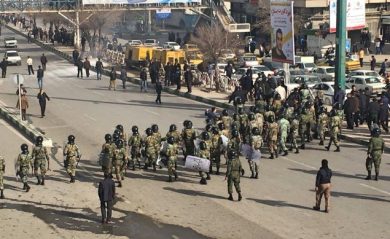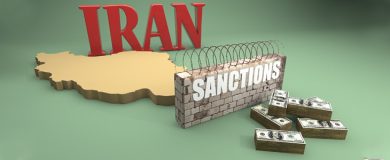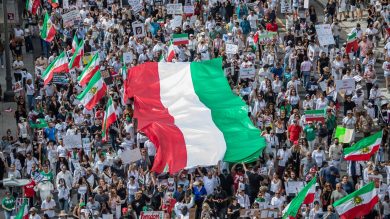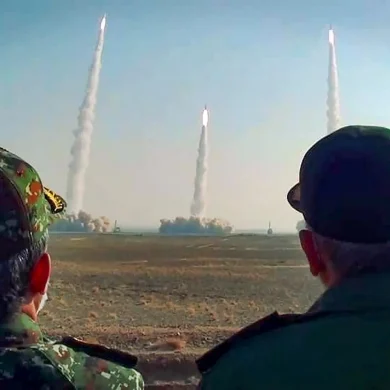The struggle for freedom and democracy in Iran has captured international attention, particularly following recent uprisings sparked by the tragic death of Mahsa Amini in September 2022. At the heart of these movements lies a universal desire for human rights, equality, and justice. The world’s response, however, has often been fragmented, leaving Iranian activists to fight against an oppressive regime with limited resources. Global solidarity, when coordinated and sustained, can play a crucial role in amplifying their voices, countering repression, and supporting Iran’s fight for freedom.
This article explores the ways the international community can stand with Iran, providing practical measures to empower activists, apply pressure on the regime, and promote democratic change.
1. The Importance of Global Solidarity
A. Amplifying Iranian Voices
• International attention ensures that the regime’s human rights violations are exposed and that Iranian activists’ calls for change reach a global audience.
• Global solidarity empowers activists by demonstrating that their struggle is not isolated, fostering hope and resilience.
B. Countering State Propaganda
• The Iranian regime uses propaganda to frame protests as foreign conspiracies. International support counters this narrative and legitimizes the movement.
C. Learning from History
• Successful movements, such as those in South Africa and Eastern Europe, show that global solidarity can be a powerful force for change in oppressive regimes.
2. How the World Can Support Iran’s Fight for Freedom
A. Political and Diplomatic Action
1. Sanctions Targeting the Regime:
• Apply targeted sanctions on Iranian officials, the Islamic Revolutionary Guard Corps (IRGC), and entities involved in human rights abuses.
• Avoid blanket sanctions that disproportionately harm ordinary citizens.
2. Global Advocacy for Accountability:
• Push for international investigations into human rights violations, including abuses during protests.
• Advocate for the release of political prisoners through diplomatic channels and international bodies.
3. UN and Multilateral Efforts:
• Leverage platforms like the UN Human Rights Council to condemn abuses and push for global action against the Iranian regime.
• Support the establishment of a fact-finding mission to document violations and build legal cases against perpetrators.
B. Supporting Iranian Activists
1. Digital Tools and Technology:
• Provide activists with VPNs, encrypted messaging apps, and anti-surveillance tools to bypass censorship and communicate securely.
• Offer training programs on digital security to protect against cyberattacks and surveillance.
2. Funding Grassroots Movements:
• Allocate resources to Iranian civil society organizations and human rights groups working to promote democracy and equality.
• Support independent media outlets to amplify uncensored news and counter state-controlled narratives.
3. Exile and Diaspora Support:
• Offer asylum and resources to Iranian activists and journalists who face threats to their lives.
• Strengthen connections between the Iranian diaspora and local activists to build international networks of solidarity.
C. Amplifying Activist Voices
1. Global Media Coverage:
• Ensure sustained international media coverage of Iran’s protests, highlighting the courage of activists and the regime’s repression.
• Document and share stories of ordinary Iranians fighting for freedom to humanize the struggle.
2. Social Media Campaigns:
• Use hashtags like #WomenLifeFreedom and #StandWithIran to amplify the movement’s messages and keep global attention focused on Iran.
• Encourage celebrities, influencers, and public figures to raise awareness about the protests.
3. Art and Culture:
• Promote Iranian art, literature, and music as tools of resistance, showcasing the creativity and resilience of the Iranian people.
3. Lessons from Other Global Movements
A. South Africa’s Anti-Apartheid Struggle
• International sanctions, boycotts, and advocacy campaigns were instrumental in pressuring the apartheid regime.
• Grassroots movements partnered with global allies to amplify their calls for change.
B. The Arab Spring
• Digital tools and social media played a critical role in organizing protests and spreading awareness.
• International support helped some movements gain momentum but highlighted the need for sustained and strategic action.
C. Eastern European Revolutions
• External pressure from democratic nations, combined with internal resistance, helped dismantle oppressive regimes during the Cold War.
4. Challenges to Global Solidarity
A. Fragmented Responses
• Differing geopolitical interests among nations often hinder unified action against the Iranian regime.
B. Fear of Escalation
• Governments may avoid direct intervention due to concerns about escalating tensions with Iran or disrupting regional stability.
C. Propaganda and Disinformation
• The Iranian regime frames global solidarity as interference, discouraging some nations and individuals from engaging.
D. Sustaining Attention
• Global focus often shifts to other crises, leaving movements in Iran without long-term support.
5. Building Sustained Solidarity
A. Unified Global Action
• Form coalitions of nations, NGOs, and activists to coordinate efforts and maximize impact.
• Align strategies to ensure consistent pressure on the regime while avoiding harm to ordinary Iranians.
B. Investing in Digital Freedom
• Support the development of technologies that enable activists to bypass censorship and communicate securely.
• Advocate for global tech companies to resist the regime’s demands for censorship.
C. Education and Awareness
• Raise awareness about Iran’s history, culture, and political struggles to foster empathy and understanding.
• Incorporate human rights education into global campaigns to highlight the universality of the fight for freedom.
D. Engaging the Iranian Diaspora
• Leverage the resources, expertise, and networks of the Iranian diaspora to support activism and amplify global solidarity.
• Encourage the diaspora to act as a bridge between local movements and international organizations.
6. The Role of Individuals in Supporting Iran’s Fight for Freedom
A. Raising Awareness
• Share stories, articles, and videos about Iran’s protests to educate others and counter misinformation.
• Participate in online and offline campaigns to keep global attention on Iran.
B. Donating to Trusted Organizations
• Support NGOs and initiatives providing resources, legal aid, and digital tools to Iranian activists.
C. Advocacy
• Write to elected officials and urge them to take action against the Iranian regime’s human rights violations.
• Join protests and demonstrations to show solidarity with Iranian activists.
7. The Impact of Global Solidarity
A. Empowering Activists
• Demonstrating that the world is watching strengthens activists’ resolve and provides them with moral support.
B. Pressuring the Regime
• Sustained global action isolates the Iranian regime, weakening its legitimacy and financial stability.
C. Inspiring Broader Movements
• Iran’s struggle for freedom inspires global movements for democracy, human rights, and equality.
Conclusion
Global solidarity is essential in supporting Iran’s fight for freedom. By amplifying activists’ voices, providing resources, and applying pressure on the regime, the international community can play a crucial role in advancing justice and democracy in Iran. While challenges remain, the resilience of the Iranian people and the strength of global alliances offer hope for a brighter, freer future. Now is the time for the world to stand united with Iran’s activists and uphold the universal values of human rights and freedom.
Join Our Newsletter!
Stay informed with the latest updates, news, and ways to take action in the fight for justice and global security. Sign up now to get updates delivered straight to your inbox!





